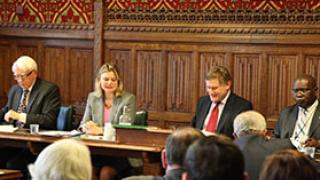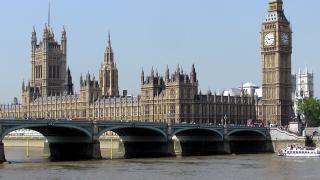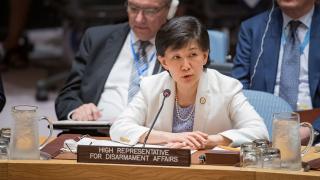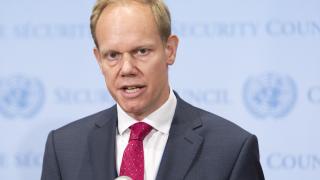
On 24 April the UN APPG, as part of the All Party Groups on International Development, helped organise the latest event in the series “Parliamentarians Ending Poverty”. The event entitled “The Future of International Development: 2015 and Beyond.” featured Secretary of State for International Development, Justine Greening, as well as H.E. Wesley Johnson, Liberian Ambassador to the UK, and Sir Richard Jolly, former Assistant Secretary General of the UN and UNA-UK PAG member. The event was chaired by Hugh Bayley MP.
Click here to see photos from the event.
The world's poorest have seen significant improvements under the Millennium Development Goals (MDGs). The number of people living in extreme poverty halved between 1990 and 2010, five years ahead of the deadline set by the international community. But, with almost 1 billion people predicted still to be living on less than $1.25 a day in 2015, there remains much to be done.
As the 2015 deadline for the MDGs approaches, the world is asking "what happens next?". The UK is taking a leading role in these discussions - Prime Minister David Cameron is one of three co-chairs of the UN High Level Panel on the post-2015 Development Agenda. The Panel is due to present its recommendations to the UN in May this year.
Sir Richard began the session by giving his perspective on lessons learnt during the original process. He said that the creation of goals has been vital in galvanising collective action on development issues and has had a far more substantive effect that anyone originally thought or hoped for – the new framework must continue to be goal-focussed in order to re-energise countries into action. There is a need, however, for countries to be assessed on their own achievements to avoid disheartening those who have in fact come a long way from their own individual starting point.
Mr Wesley Johnson emphasised the importance of technical assistance in reaching any goals set for the poorest countries. He spoke of his frustration at the inability of poor countries to negotiate satisfactory contracts with global corporations, which is exacerbating the disparity between natural resource production in Africa and the benefits and income received.
Justine Greening outlined the UK’s vision for the future of international development and the framework required to support it. She spoke unequivocally of the importance of incorporating the sustainability development goals into the post-2015 development agenda, giving rise to a single and comprehensive set of goals. She also emphasised that, “the global economy must be rebalanced alongside domestic economies” and that the poorest countries must be given the opportunities to reach their potential. We must create a framework that is “economically smart and morally right”.
Ms Greening then stated that job creation would be a top priority, with responsible economic development at the heart of the new development agenda. She said that we must create a truly global partnership in which all stakeholders work together. We must incorporate the important role of the private sector and get our own house in order so that we can have a “win-win” approach to development strategies (as already seen in the Extractive Industries Transparency Initiative). UK companies have a vital role to play, providing skills and knowledge transfer as well as maintaining best practice in their supply chains and corporate governance.
The event was well attended by over 35 MPs and Peers and included a lively question and answer session on a variety of development issues. The high level of interest in the successor to the United Nations MDGs demonstrates just how significant the UN-led development agenda has become since the turn of the century.
UNA-UK would like to thank Trade Out of Poverty for kindly sharing parts of the write-up included above.





